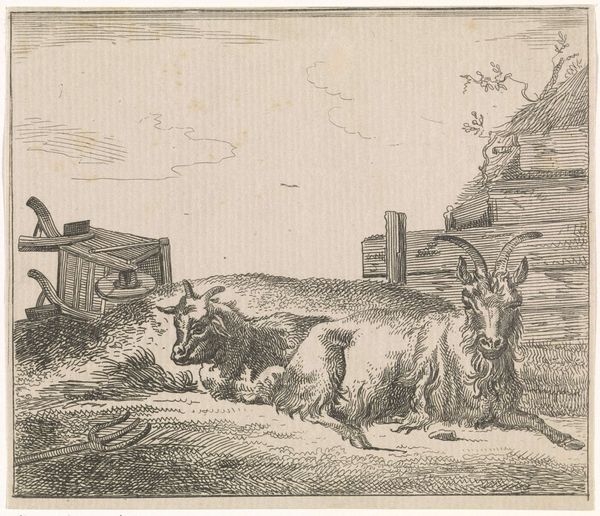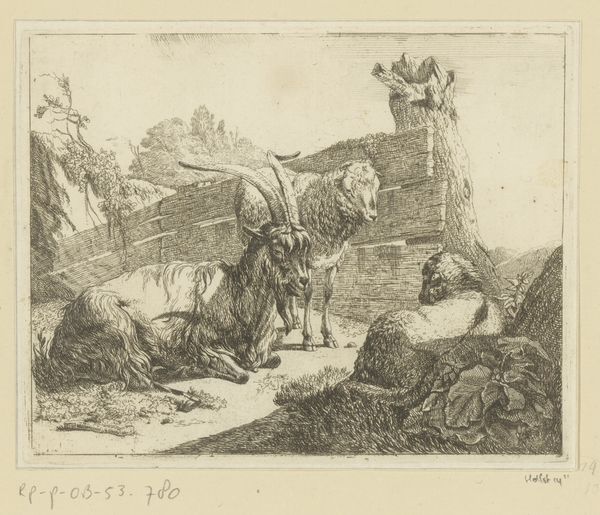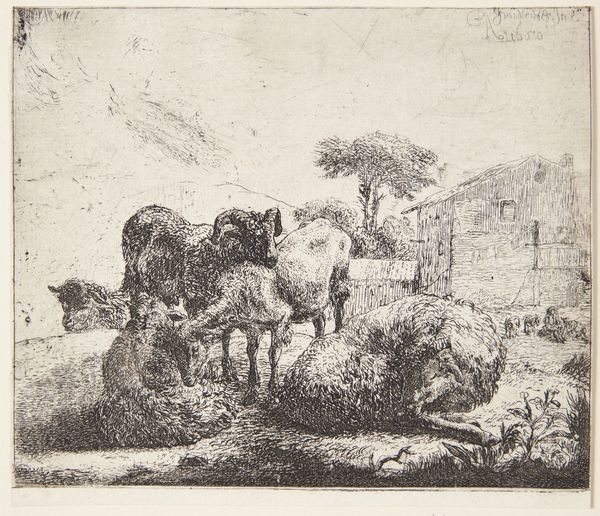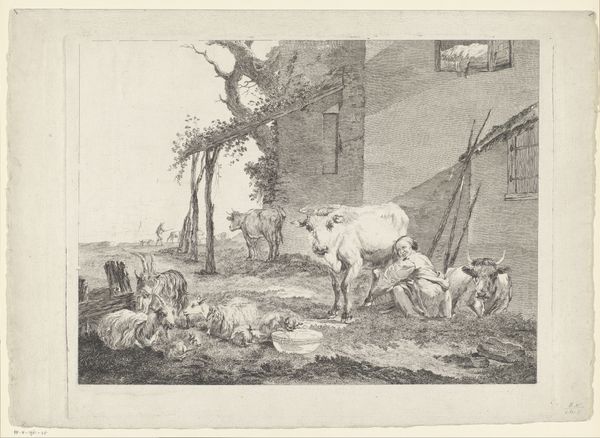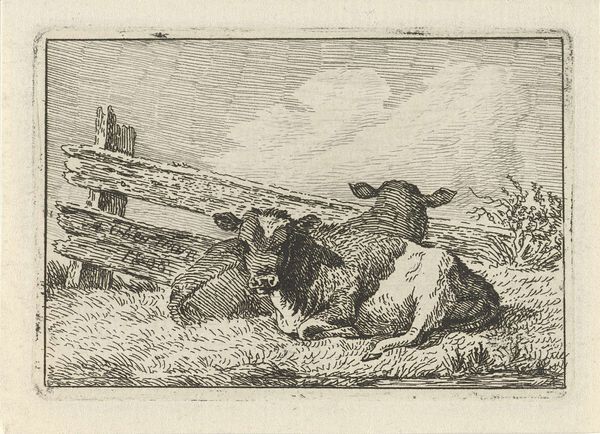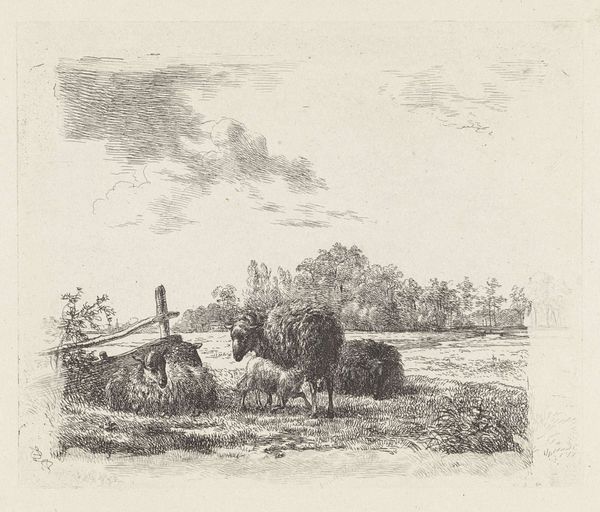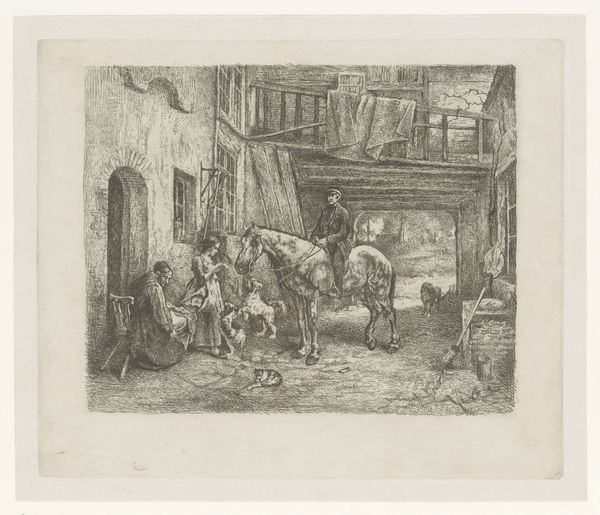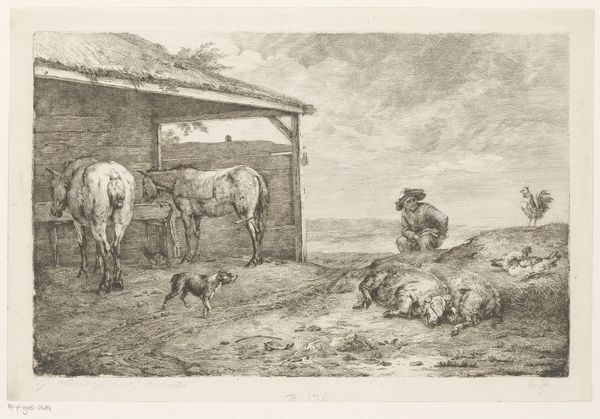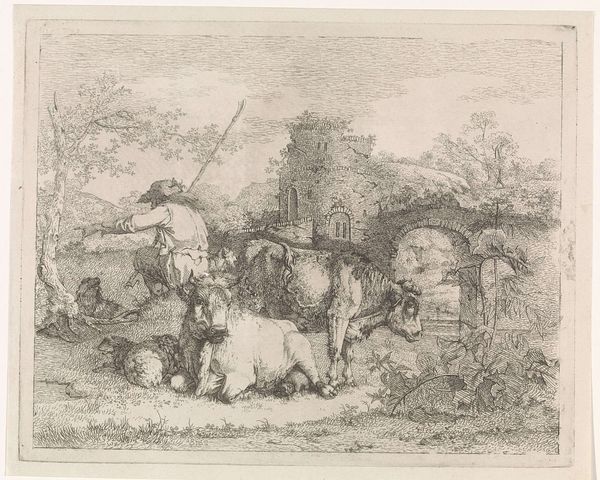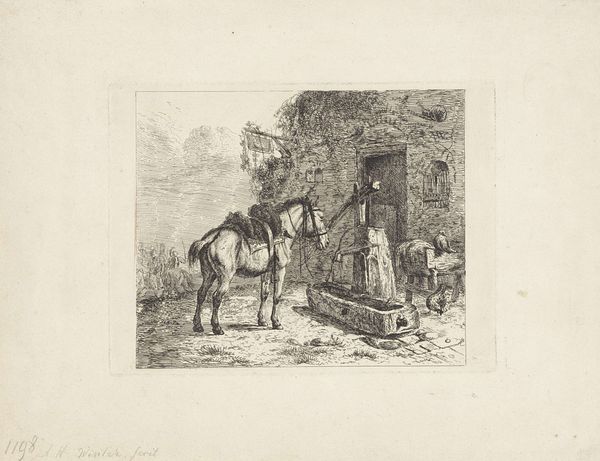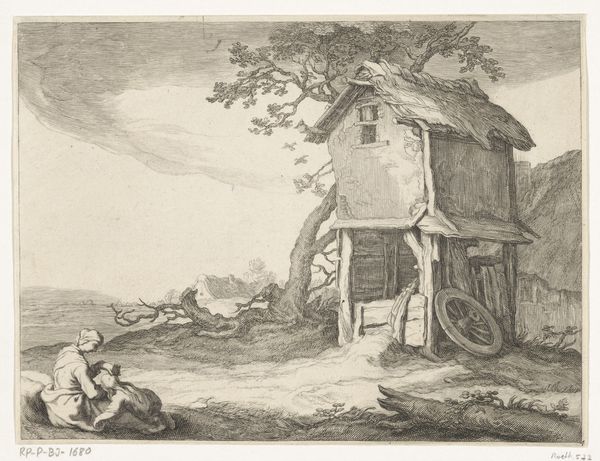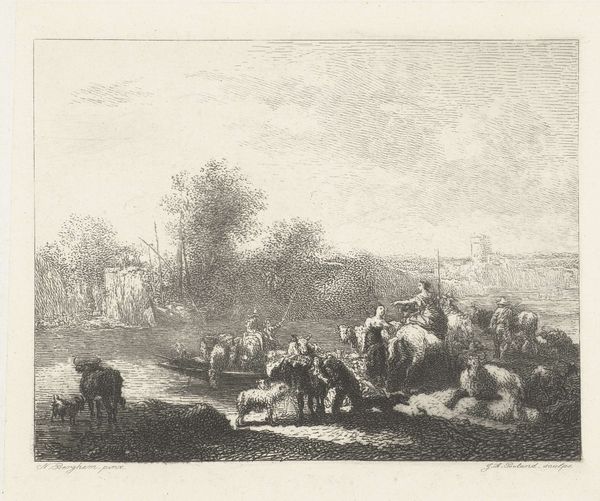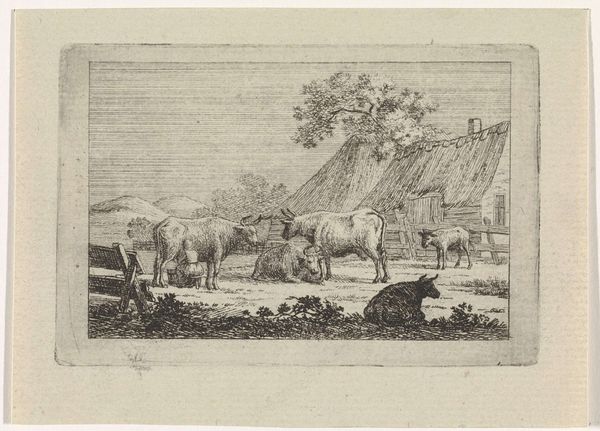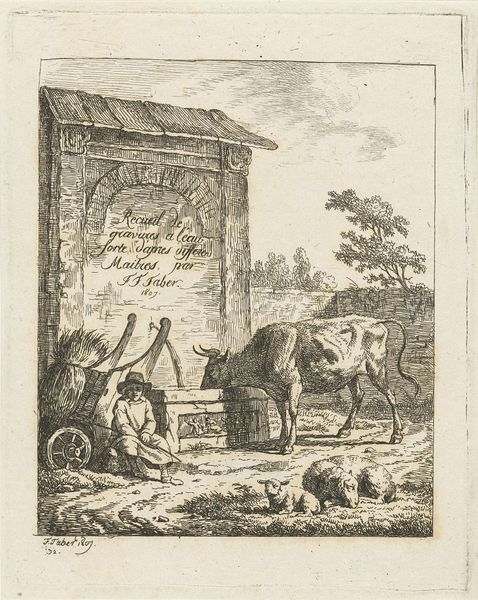
Recumbent Goats, from Different Animals 1650 - 1672
0:00
0:00
drawing, print, etching
#
drawing
#
dutch-golden-age
# print
#
etching
#
landscape
#
figuration
#
genre-painting
#
realism
Dimensions: plate: 4 7/16 x 5 1/4 in. (11.3 x 13.3 cm) sheet: 4 3/4 x 5 9/16 in. (12.1 x 14.2 cm)
Copyright: Public Domain
Adriaen van de Velde etched "Recumbent Goats" in the Dutch Golden Age, a period that saw an upsurge in pastoral imagery. The goats themselves, especially with their prominent horns, carry a rich symbolic load. Throughout history, horns have signified power, virility, and even divinity, echoing through ancient pagan rituals to their association with figures like Moses in art, owing to a mistranslation. We find this potency in earlier depictions of Pan, the goat-legged god of the wild, whose image evokes the raw, untamed aspects of nature and human instinct. The act of the goats reclining invites contemplation and perhaps a primal connection to the pastoral idyll, tapping into a collective memory of simpler, agrarian roots. These beasts become vehicles, unconsciously stirring a deep-seated yearning for harmony with nature, where instinct and the sacred intertwine. The motifs of goats, like the winding paths of human thought, resurface, adapt, and acquire new shades of meaning across epochs.
Comments
No comments
Be the first to comment and join the conversation on the ultimate creative platform.
